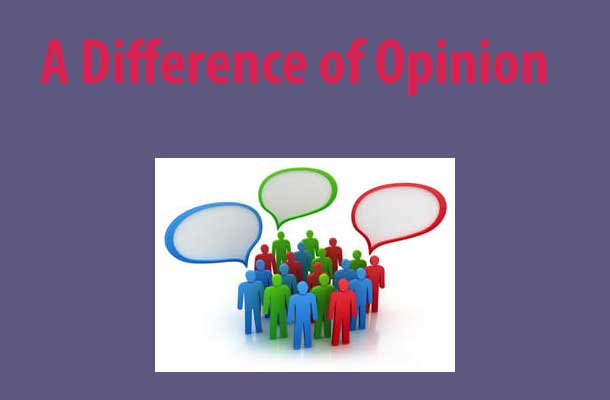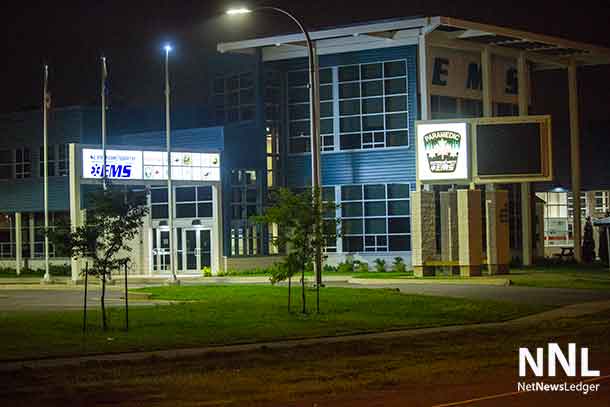 THUNDER BAY – Darrell Mandamin, a member of Whitefish Bay First Nation has unofficially recently become the voice for many who are frustrated, and live in First Nation communities. He states he is dealing with, ” . . . drug dealers and bootleggers . . .” and, ” . . . letting offenders know there’s zero tolerance.” He is protesting drug dealers and bootleggers and wants immediate action.
THUNDER BAY – Darrell Mandamin, a member of Whitefish Bay First Nation has unofficially recently become the voice for many who are frustrated, and live in First Nation communities. He states he is dealing with, ” . . . drug dealers and bootleggers . . .” and, ” . . . letting offenders know there’s zero tolerance.” He is protesting drug dealers and bootleggers and wants immediate action.
He mentions Treaty 3 police are becoming involved.
One thing Aboriginals in many cases do not remember is that jail was never the answer to people in turmoil (criminally and/or socially,) and historically it was never our answer. In fact historically jails simply do not exist. Treatment would come communally from spiritual people; Elders and community involvement was always the choice for us with ostracization (banishment) the final punishment for those who chose to keep on offending their community. What of addiction?
Addiction ravaged and ravages us because as a community we either all get sick together or we all heal together. The reason why drugs and alcohol became and are an issue wasn’t because we wanted to become addicted to them but because as a group many of us are in pain. It only takes one of us to show an answer to the group of how to feel better. Now what does that mean though? Does that mean we have to ban all drugs and alcohol? Will removing them simply make everything better? Let’s further analyze.
People are taking drugs because it makes them feel better and it’s not a good model to only view drugs and alcohol as an either/or choice, it’s not healthy to make them binary, yes/no. Drugs and alcohol are medicines too and while they have specific purposes they can be routed to other needs. Our ceremonies are also medicine and all aboriginals at one point viewed everything in the universe as medicine. So when we get sick together it means we are viewing the world differently and it’s time we got back on track with viewing things more correctly. Abuse. Destruction of ceremonies. What is going to fill this void up? A practical example because we are starting to move into the metaphysical.
When my father died alcohol did, in fact, help. It numbed me. It protected me from the ramifications of losing my father at 23. That’s fine, I grew up. I got over it. Not a very popular idea since we immediately become addicted to alcohol after even one drink, right?
Recently I lost my mother and I don’t feel the need to do that anymore, (one bottle of whiskey one day after it happened was all I needed) but there is a danger today I see in that you are viewed as part of the problem if you’re not, “traditional.” Traditional means alcohol and drug free but it actually has no place in our actual history and/or oral history, there is no evidence for it. What would we believe from before? Let’s speak on that.
I view the world as a series of medicines and sometimes if you use medicine wrong it can cause you harm and this is the model we need to go back to. I have informed my world from how we used to view it and can back this up historically and orally, this is also the opposite of what many people call, “tradition.” It’s very simple to explain, their traditions at least as far as Anishinawbek culture goes, are not based on anything but simply stating, “it’s traditional.”
We didn’t have terms for good and evil only 150 years ago, there was no term for Satan and we were very healthy people who knew that if a man had a choice between good and not so good medicines he would choose the good ones most of the time. What happened? This is where this column is about to become controversial.
We are in a rut philosophically because the people usually creating black and white choices are Christians, Christianized and/or healing themselves from their own wrongs whether that be reservation schools, alcoholism or drug use. They in many cases are stating, “We never used that stuff, it’s against our traditions.” Oh? There is very little historical and/or oral evidence backing that up. Let’s not generalize however, some people simply disagree with drugs and/or alcohol and that’s fine.
Another issue in a majority of cases is that people the most against drugs and/or alcohol are people who view their use as sins and not as medicines used for the wrong purposes and thus sinless. This is important psychologically because if you are getting drunk to numb your pain and alcohol is a medicine, well you can stop taking it at some point once the medicine works. If drinking is a sin it compounds the healing because each drink is another sin placing you deeper and deeper into the pit until you are worthless. A sinning worthless person who deserved to be harmed. “Traditional” people also contribute to a person who drinks and/or does drugs because they are constantly stating that they are not living up to their own, “traditions.” Bad Indian.
We have become in many ways people who want to hurt others for their use of substances that ends their hurt. We are mad because people do not want to feel. Can we change this? Yes. We can year by year learn our medicines and philosophies and begin talking about them again, we can also admit that our traditions are not evil, they are not Satanic and should not be banned. Our umbrella of belief includes room for other beliefs however much those beliefs want to be exclusive and this will help more than you think. The act of drugs and drinking is not because people want to sin, it is because people want to not hurt and that is the medicine currently working for them. So our goal is what?
We need to start talking openly and frankly about the idea of medicines. We have to realize that people do not become addicted because dealers are evil or because drugs are evil, we become addicted because we are in pain. We want to reduce that pain whether it is the pain of abuse or simply boredom and poverty.
We need to stop using polemics, black and white choices, “. . . zero tolerance . . .” It’s not going to be easy. Life isn’t easy and one teaching from some elders I met was that the life on the land before the white man was, “hard.” It was, “hard.” Life is sometimes hard and we’d do well to remember that while we’re giving up on our own people and demanding they be punished and banished.
I asked those same elders if that, “hard” life was good. They smiled and said, “I wouldn’t have changed a thing.”
Tony McGuire






